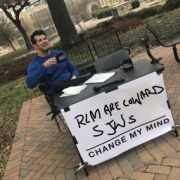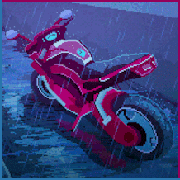|
As a Neanderthal picking away at te piano mostly as a way to illustrate musical concepts from a jazz theory book; is there a particular way I should be fingering extended chords? This feels like a really stupid question - but for simple comping should I stick the root in the left and the rest in the right? I'm sure I'm trampling over centuries f delicate nuance but just for the sake f banging out a four or five note chord without it sound like a dirge would be wonderful.
|
|
|
|

|
| # ? May 19, 2024 09:54 |
|
For a simple "piano style" (as many theory books would say) chords, root note in the left hand, and the other notes (I assume three notes, as this is the usual) in the right hand is perfectly fine. Basic fingering (lets say C major root position), LH - finger 5 (C in the bass), RH - 1/3/5 (for the notes C/E/G in the treble). For extended chords, there is no particular way really. Given that you are just demonstrating the chord, rather than actually playing a piece of music there is no real need to work out fingering for it. Just do what is best/easiest for you! Hope this helps, sorry for formatting and if it's a bit confusing. Cantoris fucked around with this message at 23:43 on Aug 4, 2015 |
|
|
|
Nope that's perfect, thank you - I'm a little further on since the above post, currently working on sus chords. Of course, the first demonstration is Gsus13 to Cmaj7, explained more fully with Gsus to Cmaj7 where the G of the Gsus is in the left, then an F triad in the right. Oh but that triad is in the second inversion, because OF COURSE WHY NOT. OTOH I'm getting pretty quick at reading chords, I may need to get a bigger keyboard, this little three octave guy isn't doing anyone any favors at all.
|
|
|
|
I auditioned for our stange ensemble group to become one of the four pianists and I made it! However, yesterday I got an email from the higher jazz ensemble leader asking me if I would like to be in the jazz band, and I said yes. I did a phone interview and played some pieces for him, he loved it and I'm in. I'm so loving pumped!
|
|
|
|
http://www.pianostreet.com/smf/index.php?topic=59261.0quote:What are some awesome pieces at about the same difficulty as Chopin's Ballade No 1? Also, how difficult is the Grieg Piano Concerto, and would any of you recommend it as a first concerto to learn? quote:This is abit similar in demanda due to the length. Some parts are more diffucult some a bit easier but overall i place in a similar 8+or so range Quiet as it is, I appreciate this thread for not having poo poo like this in it.
|
|
|
|
lol
|
|
|
|
Unreliable posted:I auditioned for our stange ensemble group to become one of the four pianists and I made it! Congratulations! Have you done much jazz before?
|
|
|
|
Can anyone recommend a good teacher in Brooklyn? Cheap if possible.
|
|
|
|
So is it normal to be lectured basically weekly on the importance of sight reading? I'm getting kind of sick of with my piano teacher. Like, I totally get why he does it and he's objectively right about it, but I'm the reality is that I'm doing it just for fun and as much as I try to practice every day piano is at best maybe my 4th or 5th priority in a day. Not that I don't think sight reading isn't important or whatever, but almost all of his examples of why it's important are quite literally things that will never ever happen in my life. Getting really frustrating devoting so much lesson time to it.
|
|
|
|
rrrrrrrrrrrt posted:So is it normal to be lectured basically weekly on the importance of sight reading? I'm getting kind of sick of with my piano teacher. Like, I totally get why he does it and he's objectively right about it, but I'm the reality is that I'm doing it just for fun and as much as I try to practice every day piano is at best maybe my 4th or 5th priority in a day. Not that I don't think sight reading isn't important or whatever, but almost all of his examples of why it's important are quite literally things that will never ever happen in my life. Getting really frustrating devoting so much lesson time to it. Tell him. Sight reading really isn't that important especially if you neglect a lot of other things in the process. I had to take a break from lessons to handle some other stuff but for the two months or so I was going twice a week I don't think we so much as looked at sheet music.
|
|
|
|
rrrrrrrrrrrt posted:So is it normal to be lectured basically weekly on the importance of sight reading? I'm getting kind of sick of with my piano teacher. Like, I totally get why he does it and he's objectively right about it, but I'm the reality is that I'm doing it just for fun and as much as I try to practice every day piano is at best maybe my 4th or 5th priority in a day. Not that I don't think sight reading isn't important or whatever, but almost all of his examples of why it's important are quite literally things that will never ever happen in my life. Getting really frustrating devoting so much lesson time to it. It's probably not unusual, but I've had many teachers and we mostly covered sight reading when it came close to exam time. Otherwise we never covered it ever. To be honest preparing for harder pieces makes sight reading all the easier stuff naturally intuitive anyway.
|
|
|
|
Looking to house my Studiologic 88 Numa. Am I going to regret buying a generic X-stand? I need to get a decent adjustable stool as well since right now the keyboard is sitting on my desk and that's just.. awful. I gather that I'll spend money on the stool but I'm not sure whether a $15 x-stand is going to be any better than a $90 x-stand or something like that. Trying to self-teach myself so I'll likely be popping in here. Right now I'm literally just starting out. My friend lent me a copy of his "Learn and Master Piano" course so I don't know realistically how much I should expect out of it, but I'm willing to put in a few hours a week so hopefully I at least get a decent feel for the keyboard before TOO long. I know it's no replacement for a piano teacher but it'll have to do for now. some kinda jackal fucked around with this message at 20:14 on Oct 12, 2015 |
|
|
|
I bought this stand for less than $50 australian which given our exchange rate at the moment would put it closer to the $15 end of things. It's a great stand, very stable and non slip, I picked this one due to greater height adjustability and also the top bars being the same width as my casio, if your piano is fairly slim this is comething to consider otherwise there will be steel tubes poking out either side of your keys. I'm also doing the self-taught thing, if you have an iPad then Piano Maestro is great for picking up the basics (can use the inbuilt mic or a midi connection to detect your keystrokes), and the Hanon Virtuoso Pianist book is great for just increasing your mechanical skills, which is where my main focus is because I play guitar and bass so have a decent theory footing already.
|
|
|
|
I have a Knabe upright that's been in the family probably 3-4 times as long as I've been alive that has sat basically unused for over a decade. I started taking lessons this semester and while I'm usually practicing in my room with a Yamaha MM8 I'd love to play on the upright occasionally. Stupid question: To my mediocre ear it sounds like the keys produce the right notes, but almost all of them feel like they have a lot of 'give' (there's almost no resistance until the keys are halfway down) and it's basically impossible to play anything softly. Is that something a professional could fix with a house call and how much on average would it cost for a tuning and whatever kind of maintenance would cover that? I'm in Annapolis, Maryland about half an hour south of Baltimore if anybody has recommendations for people/companies.
|
|
|
|
Can anyone recommend a cheap-ish Piano VST? This is for me to learn on so to be honest I probably won't know the difference between a good sounding expensive VST and a cheap sounding one at this point. I've been using Garageband on my MBP but my keyboard is right next to my PC desktop so I'd rather just set something up there.
|
|
|
|
Martytoof posted:Can anyone recommend a cheap-ish Piano VST? This is for me to learn on so to be honest I probably won't know the difference between a good sounding expensive VST and a cheap sounding one at this point. I've been using Garageband on my MBP but my keyboard is right next to my PC desktop so I'd rather just set something up there. The free Kontakt Player comes with a free library, and I think it contains a piano or two. e: Yeah, it seems like it comes with a patch called "Ragtime Piano". I just loaded it up and played around with it, and it's not bad at all. Usually "ragtime" piano sampler instruments mean either tack piano or one that's slightly detuned, but the one in the Kontakt library is pretty straightforward and usable. Trig Discipline fucked around with this message at 22:45 on Oct 24, 2015 |
|
|
|
Excellent, thanks!
|
|
|
|
No worries! If you get way into it and want more sounds, the full version of Kontakt isn't crazy expensive and it goes on sale fairly often. It comes with a couple more pianos, but more than that it opens you up to a world of third-party sample libraries that are often quite affordable and quite good. Kontakt Player is very much a gateway drug.
|
|
|
|
Not to derail into a Kontakt discussion, but if I buy the full version can I use it on more than on device/OS, do you know?
|
|
|
|
Martytoof posted:Not to derail into a Kontakt discussion, but if I buy the full version can I use it on more than on device/OS, do you know? Yes, as far as device is concerned. I have it running on two Macs right now. Not sure about multiple OSes though.
|
|
|
|
The NI official stance is that it can be installed on two computers simultaneously as long as you only use one at a time, three if you buy it as part of komplete, and the OS doesn't seem to matter. The wording on this page sort of indicates that they aren't hard limits because there is no method to deactivate an installation so you could probably get away with having it installed on everything you own as long as you don't use them simultaneously.
|
|
|
|
FirstPlayer posted:I have a Knabe upright that's been in the family probably 3-4 times as long as I've been alive that has sat basically unused for over a decade. I started taking lessons this semester and while I'm usually practicing in my room with a Yamaha MM8 I'd love to play on the upright occasionally. It's hard to say how much but reading this: http://www.stevespianoservice.com/Free-Online-Piano-Repair-Instruction/34-piano-key-travel-adjustment.htm Probably not a huge amount, if it's just the felt. It will absolutely need a few tunings though if it's been unused for that long. Around here (Boston area) a normal tuning is probably $100 or so. Might be cheaper where you are. If there's a piano store around you is ask them to recommend a tuner. Good luck, I hope you get it fixed!
|
|
|
|
Bob Shadycharacter posted:It's hard to say how much but reading this: http://www.stevespianoservice.com/Free-Online-Piano-Repair-Instruction/34-piano-key-travel-adjustment.htm Thanks! 
|
|
|
|
SSH IT ZOMBIE posted:Been taking 3 months of lessons at the suggestion of this thread. This is real old, but I hear this concern a lot. Let me tell you about me. I've played for twenty years, went to college to study music with a focus on piano, and have played and performed some really difficult poo poo. To this day, I cannot sight read if my life depended on it. I've stopped playing seriously for some time, but I can tell you why I can't sight read. The way I learn the music is extremely methodical and I tend to like to think about details of a performance more than just hitting notes, so when I first attempt a piece, it's really slow and really bad. This kind if learning has a benefit though. Because I tend to spend so much time with a section of music before becoming proficient with the next, I have a pretty strong aptitude of memorizing pieces. Pretty much every piece I ever played, I've also memorized. My point is that you shouldn't worry about it. If you want to learn how to sight read, then go for it, but don't stress about your inability to do so. Lots of musicians way better than myself sight read like garbage and you shouldn't use that as a measuring stick of your overall aptitude.
|
|
|
|
I downloaded a DAW last Friday night, with the intention of making electronic music. I played around with the synthesizers and that, but to start making anything that sounded like something I started looking up chords, and scales. Soon I was figuring I'd need to get a midi keyboard to be able to easily sound things out. After I looked chords and scales I realised I'd need to figure out composition stuff, to know what works. So I looked at some piano videos, then tones and semitones, then time signatures, then thirds and fifths, then reading music, and then I decided I'd have to learn how to play piano. I came home to my parents two days ago. My mother and her siblings were forced to learn piano for a few years when they were young. Of course they hated it, being forced, and dropped it as soon as they could. When my grandmother died my parents brought her piano to their place and it's been sitting in my family home for years. I started playing the C Major scale just to get my fingering right yesterday. My father said it was the longest anyone had been at it in thirty years. I watched more videos last night, especially about reading music. I think my long term goal would be to play Iron Maiden's Run to the Hills, seeing as it got stuck in my head this morning. I looked at some sheet music for it and hadn't a clue what it meant, so I know I need practice at basic things. With that I opened up the piano stool with the piano, and there is a load of sheet music, designed for beginners and just above beginners in there. I pulled out Silent Night (it looked easy enough) and started playing it, extremely slowly. First I had to figure out what notes the sheet music was saying to play, then I had to figure out what notes they were on the piano, but I managed a few seconds of it after plinking about for a bit. With that being said I wasn't just playing by ear, hitting notes to see what was supposed to come next. I was properly going by what the sheet music said. I think it's a huge help that I know the song, so I don't need to know the timing based on the notes indicated and I can just focus on hitting the right keys. That'll be next though, once I can get all the keys memorised properly; figuring out what the note lengths mean while also getting the note placement on the keyboard. So with all that being said, last Saturday night I was just looking online for a cheap midi keyboard I could program electronic music with. Now I think I need to triple, or quadruble my budget to about €400 to look for a keyboard with proper weighted keys. I don't know if this is good or bad news for my parents, because the only piano I'll have to practise on for quite a whole is the one in their place. I guess I'm going to be home a lot more.
|
|
|
|
Double post, but it's not like many other people seem to want to post. I was playing Silent Night the other day. It just turns out that I was playing the singing part, with only one note played at a time. That was grand, even getting that much into my head (and I still can't play it perfectly,) was fine. Today I started looking at the proper piano arrangment. I just played with my right hand today, getting the treble down. I can't do it very well yet, and there's a few areas that cause me problems. There's one part where I play F B D and F again all at the same time (I don't know if that has a name.) I can stretch an octave if I get ready for it, so it's theoretically possible for me to play the two Fs, but hitting the B and D at the same time, with my 3 and 4 finger is really tough. If I hit B and D then I either hit the keys surrounding the higher F, or the higher F is really light sounding. Another part that's giving me problems is I hit F B and D, then F and D, and I'm supposed to hold the D and hit C a half beat later, before going to F and B. I'm getting there though. The sheet music is also pretty battered, I'd say it's almost double my age, and it can be hard to make a few areas out. I did notice that reading the notes came a little easier, even after only two days of practice. It's just a problem that after tomorrow I don't know when I'll be near a piano again. Getting together the €500 or so for the entry level 88 key Yamaha a place here stocks could take me months.
|
|
|
|
1) Sure it's not Bb? F B D F would be a diminished chord in 2nd inversion which I don't remember seeing in a lot of Silent Night arrangements. Check the key signature - it's the collection of flats or sharps at the beginning of each line. If there are two flats (b), then you should be playing Bb (the black key) not B (the white key). 2) I would use 5 3 2 1 (LH) or 1 2 3 5 (RH) to finger that chord. I'm a tiny person with tiny hands and I could probably reach both F's that way (especially if it's really Bb in the chord like I suspect)
|
|
|
|
There's no flat symbols that I can see. This is the measure I'm referring to.  And the whole first sheet is here. You can make out the clefs amidst all that sepia and behind the tape, and there's no flat signs there either.  And I'll have to read up on flat signs again. I thought where the flat was placed on the staff told you what notes to flat. Or is having two of them like you say just changing the scale to something appropriate?
|
|
|
|
You've got it, I just had a feeling that it was in Bb major based on the chords you were naming, which has two flats. But I was thinking the chord was in the left hand and it's in the right, and everything makes MUCH more sense with a G in the left hand. Instead of a diminished 7 chord in 2nd position, which happens sometimes but is a little out there for Silent Night, it's a root position dom7 chord which is incredibly incredibly common in Western music. If I were playing that measure I would either 1) finger it 1 2 3 5 like I said, or 2) cheat and just do the top 3 notes. The arranger was trying to make fingerings smoother for pianists with large hands, who would probably keep that right hand fingering for the whole measure.
|
|
|
|
Today is my last day with the piano for a week or two, until I come home to my parent's place again. I just concentrated on scales today, I might try Silent Night again later. With the scales though I really tried to listen to what I was playing. I figure I'm going to have to get a metronome, or app for my phone when I'm here next so I get the timing right. But something I did notice was that the volumes and intensity I was hitting each key with changed completely depending on where my hand was and which fingers I was using. Going down the keys my thumb was strong, but it was weak and stymied going up after doing the tuck under my 2 and 3 fingers. I really had to concentrate on trying to keep everything at the same intensity, and I know I didn't achieve it. Similarly my 4 and 5 fingers were quite weak, although I had a tendency to pound out the C key (just playing C Major at the moment.) When I started to focus on the intensity of the notes, I also tried to play the scale differently every so often. If I linger on the key for a little, while playing the next note I get a relaxed, smooth sound, so I tried to change it up. I got louder but the notes also sounded punchier when I started to bounce my hand. I was using my whole arm to hit into the key, just moving my shoulder the tiniest bit, or maybe my bicep. Not only was I bouncing my arm, almost, but the notes sounded bouncier, and more defined. Although this was actually tiring, especially for my left arm. Is this something I should be doing? I know playing the notes in different ways, and getting different sounds out of the keys is important down the line. I don't know if the way I'm doing it is correct, or if I should even be thinking about this a few days into playing. Also, should I be thinking about using the pedals really early on? I have no idea how to use them or when to use them. Any time I tried pressing one it sounded awful. I'm filling the thread with questions and comments. I would hope to get a teacher down the line, but when I don't have an instrument available daily, or even every weekend I don't know how I can make progress with lessons. So I'm going to start saving for something. It'll take me a good while, but I'll get there.
|
|
|
|
Mrenda posted:Today is my last day with the piano for a week or two, until I come home to my parent's place again. I just concentrated on scales today, I might try Silent Night again later. With the scales though I really tried to listen to what I was playing. I figure I'm going to have to get a metronome, or app for my phone when I'm here next so I get the timing right. But something I did notice was that the volumes and intensity I was hitting each key with changed completely depending on where my hand was and which fingers I was using. Playing with different touches is great! One of the piano's great strengths is how expressive it can be and a lot of it comes from that sort of thing. Don't do anything that hurts, and if it makes your arm tired keep at it but take breaks to rest. Pedals: the piano has these felt wedges called dampers that stop the string from vibrating whenever you're not playing a note. The right pedal is called the damper pedal, and it holds those felt dampers up and away from the strings so the note will continue sounding after you've let go of the key. The left pedal shifts the hammers to the right so that they hit 1 or 2 strings instead of 2 or 3, it makes it possible to play much softer. In some uprights it will lower a panel of felt to muffle the sound instead. If you have a middle pedal you can play a note, hold down the pedal, and just that note will continue sounding while you play others.
|
|
|
|
Re pedal chat. If I remember grades its not till around grade 3 or 4 that predals were introduced. I can see the logic behind that (do never be a larry leadfoot) and its yet more body parts to think about and control.
|
|
|
|
So this is my second weekend of practising. I bought Alfred's Basic Adult Piano Course last night. I've started on a few of the pieces, some sound fine, others don't sound like music at all. Even basic music. Can anyone recommend any really simple pieces of music I can work towards? Even the Grade 1 pieces seem like something I shouldn't consider for another few months, but I'd like to have something I can practise playing in the meantime. Something that sounds musical.
|
|
|
|
Memory from Cats (easy version) was the first "real" piece I learned. I practiced it while I was going through Alfred's just like you and was able to pick it up in a couple of weeks. I followed that up with Clair de Lune (again, an easy version). You can find a lot of this stuff online for free/cheap, but it's really worth going to a music shop and asking someone there to point you towards some beginner level sheet music. Tell them the type of music you'd like to play and they'll be able to give you tons of recommendations. e: Bob Shadycharacter posted:Pedals: the piano has these felt wedges called dampers that stop the string from vibrating whenever you're not playing a note. The right pedal is called the damper pedal, and it holds those felt dampers up and away from the strings so the note will continue sounding after you've let go of the key. Not sure if my piano is an anomaly or something, but my middle pedal is a practice pedal that lowers the felt muffle guy. Left pedal is the softener or whatever you call it. kedo fucked around with this message at 20:06 on Nov 27, 2015 |
|
|
|
kedo posted:Memory from Cats (easy version) was the first "real" piece I learned. I practiced it while I was going through Alfred's just like you and was able to pick it up in a couple of weeks. I followed that up with Clair de Lune (again, an easy version). Nah you're probably right - I'm just used to my grand - I've only ever seen one piano with the felt thing (and the felt had been mostly eaten by mice). Some uprights only have two, also.
|
|
|
|
kedo posted:Left pedal is the softener or whatever you call it. Soft pedal is called una corda because in a fancy grand piano, the hammers all move over a bit so they're only hitting one of the two-three strings each note really has. It gives it a different tonality that is pretty interesting. Some cheap upright pianos don't have true una corda pedals, they just move the hammers in closer so they don't hit as hard.
|
|
|
|
Just had my ATCL oerformance diploma exam today. Close to two years work (should have been a bit less but events delayed things), leading up to 40 odd minutes in a church on a rainy and blustery day in southern England. Of course, the work was also towards the small matter of general improvement, and thus extension of my enjoyment of playing, but still... a pretty big event in my year. I think (as did my teacher, who was page turning, mainly because of the last piece, which was very high tempo and lacking any opportunities for solo page turns) that I passed, though I'm not holding out a great deal of hope for a distinction. Still, pretty cool to hopefully get a professional level qualification as a result of my amateur pursuit/passion. On to some new pieces and maybe think about my next set of medium term goals! kedo posted:
Hawkgirl posted:Soft pedal is called una corda because in a fancy grand piano, the hammers all move over a bit so they're only hitting one of the two-three strings each note really has. It gives it a different tonality that is pretty interesting. Some cheap upright pianos don't have true una corda pedals, they just move the hammers in closer so they don't hit as hard. The middle pedal has various functions - on an upright I used to have it also engaged the muffler and functioned as a practice pedal, but there are various other things they can do. On most grands that have one though it is a sostenuto pedal. Some high end uprights have sostenuto but it is less common. With the left pedal, due to the difference in action basically all uprights have the soft pedal where the hammers rest closer to the strings, and grands have the true una corda which actually changes the timbre. The biggest Fazioli concert grand can come with four pedals if you want - the fourth moves the hammers nearer the strings like an upright's soft pedal.
|
|
|
|
I just picked up a second hand Roland PC 70 controller so I could learn some keyboard skills to add to my bass and guitar skills and because I think it will help me better understand how music fits together. I've got enough of an understanding of theory that I can pick out notes and some chords and play some simple tunes with both hands now that I've had a couple of hours of messing around with it. My wrists hurt though. I'm guessing I'm doing it wrong, but it looks like I've got my poo poo basically right. Is this just an adjustment thing like learning guitar where I'm going to feel a bit of strain at first, or do I need to completely re-think the way I'm doing things. I think I've got the height right and it's comfortable enough with my right hand to the far right and my left hand to the far left of the keyboard, but playing with both hands towards the middle gets uncomfortable pretty quick. e: Actually, I think I'm sitting too close. I'll try moving back. Elector_Nerdlingen fucked around with this message at 06:47 on Dec 5, 2015 |
|
|
|
AlphaDog posted:I just picked up a second hand Roland PC 70 controller so I could learn some keyboard skills to add to my bass and guitar skills and because I think it will help me better understand how music fits together. I've got enough of an understanding of theory that I can pick out notes and some chords and play some simple tunes with both hands now that I've had a couple of hours of messing around with it. It's normal for your fingers to get tired when you use them for a while, but strain is not something you should be feeling. Proper piano finger position is similar to proper typing position, except with the piano you will be moving/using your arms while they probably won't move much at a computer keyboard.
|
|
|
|

|
| # ? May 19, 2024 09:54 |
|
Yeah, that's how I'm sitting, but I noticed that I'm kind of leaving the position over time. I guess it's gonna be the same as adjusting to bass from guitar - I'll just have to keep thinking about doing it right and catching myself when I slip. Rastor posted:It's normal for your fingers to get tired when you use them for a while, but strain is not something you should be feeling. Proper piano finger position is similar to proper typing position, except with the piano you will be moving/using your arms while they probably won't move much at a computer keyboard. Can you (or anyone) elaborate on the "using your arm" thing? Just to change positions left/right or is it more than that?
|
|
|


































